ГДЗ Англійська мова 8 клас. Підручник [Несвіт А.] 2021
Unit 3. Lessons 7-8. Taras Shevchenko
1. Work in pairs. Look at the pictures. Say what you know about these Ukrainian writers and their literary works.I know that Taras Shevchenko is one of the most famous Ukrainian poets all over the world. He is our famous «Kobzar». I know that Ivan Franko was a philologist as well as a writer and poet. He is known as our «Kameniar». Lesia Ukrainka is our famous poet. She was very educated person.
2. Read the text about Taras Shevchenko. Say what facts in his biography impressed you most.
I was impressed by the fact that Taras Shevchenko orphaned when he was 11 but he could find his path in life. Russian painters bought Shevchenko’s freedom. Shevchenko established modern literary Ukrainian language. There are a lot of monuments to Taras Shevchenko not only in Ukraine but also all over the world.
3. Work in pairs. Take turns to ask and answer the questions.
1. Taras Shevchenko was born in the village of Moryntsi on March 9, 1814.
2. Yes, he was orphaned in his early teens, when he was 11.
3. He grew in poverty and misery because he was orphaned when he was 11 and his father was a serf.
4. When Taras was 14 years old, he became a servant («a houseboy») in the house of his owner, P. Engelhardt.
5. P. Engelhardt noticed Shevchenko’s artistic talent.
6. T. Shevchenko became free after K.Bryulov had painted the portrait of the Russian poet V. Zhukovsky and sold it for 2500 roubles.
7. He was admitted to Academy of Arts in St.Peterburgh.
8. In 1840 he published his first collection of poems «Kobzar».
9. Shevchenko’s role in the history of the Ukrainian literature is important because he was the founder of the new Ukrainian literature, he established Ukrainian as the national literary language.
4. Look through the text of Ex. 2 on page 74 and say what you have learnt about these people: P. Engelhardt, K. Bryulov, V. Zhukovskiy.
Group A. 1. Taras Shevchenko describes the Dnipro River as a mighty river which roars and bellows. 2. The weather is gloomy and angry. 3. The description of the Dnieper, ground and willows help us to see the picture of the Ukrainian nature. 4. The poem awakens patriotic, feelings in readers.
Group B. 1. The poet really loved his Motherland and the following words show it: my beloved Ukraine, the boundless steppes, the Dnieper’s plunging shore. 2. He prayed for freedom for his countrymen. 3. The poet was dreaming of the free great country. 4. He believed that people could gain their freedom when they rose up and broke their heavy chains.
6. a) Listen to the text about T. Shevchenko’s works. Choose and tick the statements T (True) or F (False).
1. False. «Kobzar» is the name of his first small collection of poems.
2. True.
3. True. In his poems Shevchenko depicted the mother as the most wonderful sacred thing on the earth.
4. True. He also wrote of his love for homeland and the fight for its freedom and happiness, of the fight for spiritual freedom.
5. False. Taras Shevchenko brought completely new themes and images to the Ukrainian literature. 6. True;
b) Listen to the text again and complete the sentences.
1. «Kobzar» is the name of Shevchenko’s first small collection of poems.
2. He wrote a ballad «The Bewitched#, a completely realistic work about things that were Quite usual for those days.
3. It was a tragic story of a serf girl who had been seduced.
4. In his poems he wrote of his love for homeland and the fight for its freedom and happiness, of hatred to any oppression, of the fight for spiritual freedom.
5. His poetry contributed greatly to the evolution of the national Ukrainian consciousness that’s why he is a national poet, a poet of the people.
6. He wrote of the fight for spiritual freedom.
7. T. Shevchenko brought completely new themes and images to the Ukrainian literature.
8. Complete the sentences. Use the past continuous form of the verbs.
1. A. What were you doing when I saw you yesterday?
B. I was talking to the librarian.
2. Dan Who were you talking to when I phoned you?
Steve It was my brother. He was telling me about the book he read.
3. A. Were you watching TV when I called you last night?
B. No, I wasn’t. I was reading a magazine.
4. A. Were you playing tennis yesterday afternoon?
B. No, I was not playing tennis, I was doing my homework.
 ГДЗ 8 клас Підручник Генеза Англійська мова 2021 Несвіт
ГДЗ 8 клас Підручник Генеза Англійська мова 2021 Несвіт
 Якщо помітили в тексті помилку, виділіть її та натисніть Ctrl + Enter
Якщо помітили в тексті помилку, виділіть її та натисніть Ctrl + Enter 12.09.2021,
12.09.2021,
 16 769,
16 769,
 0
0
 Назад
Назад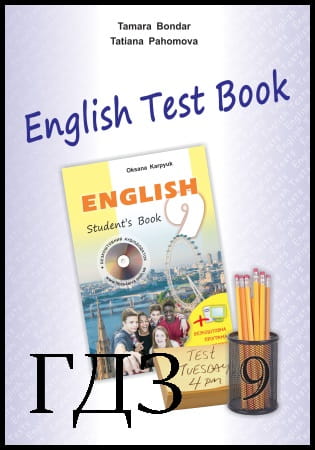
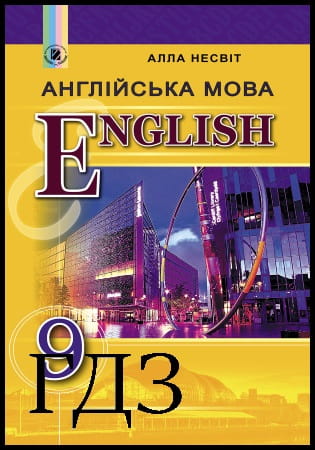
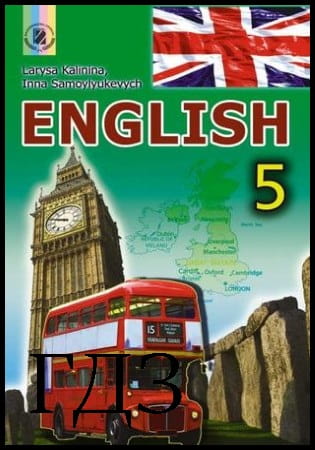
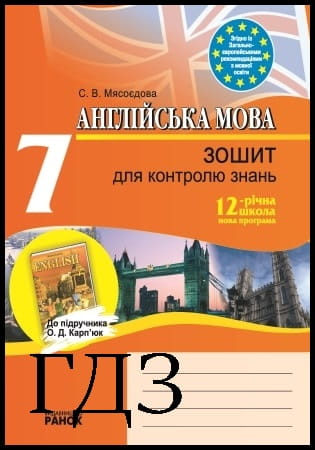
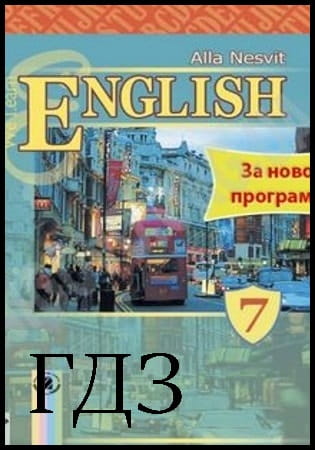
![ГДЗ Природознавство 5 клас. Підручник [Ярошенко О.Г., Бойко В.М.] 2018 ГДЗ Природознавство 5 клас. Підручник [Ярошенко О.Г., Бойко В.М.] 2018](/uploads/posts/2019-04/1555779316_5_p_y_u2018.jpg)
![ГДЗ Основи правознавства 9 клас. Підручник [Наровлянський О. Д.] 2017 ГДЗ Основи правознавства 9 клас. Підручник [Наровлянський О. Д.] 2017](/uploads/posts/2019-02/1550928122_9k_p_n_2017.jpg)
![ГДЗ Українська мова 8 клас. Підручник [Глазова О.П.] 2021 ГДЗ Українська мова 8 клас. Підручник [Глазова О.П.] 2021](/uploads/posts/2021-10/1633720388_8k_y_g_2021.jpg)
![ГДЗ Вступ до історії 5 клас. Підручник [Гісем О.В.] 2018 ГДЗ Вступ до історії 5 клас. Підручник [Гісем О.В.] 2018](/uploads/posts/2019-07/1564163269_5k_i_h_2018.jpg)